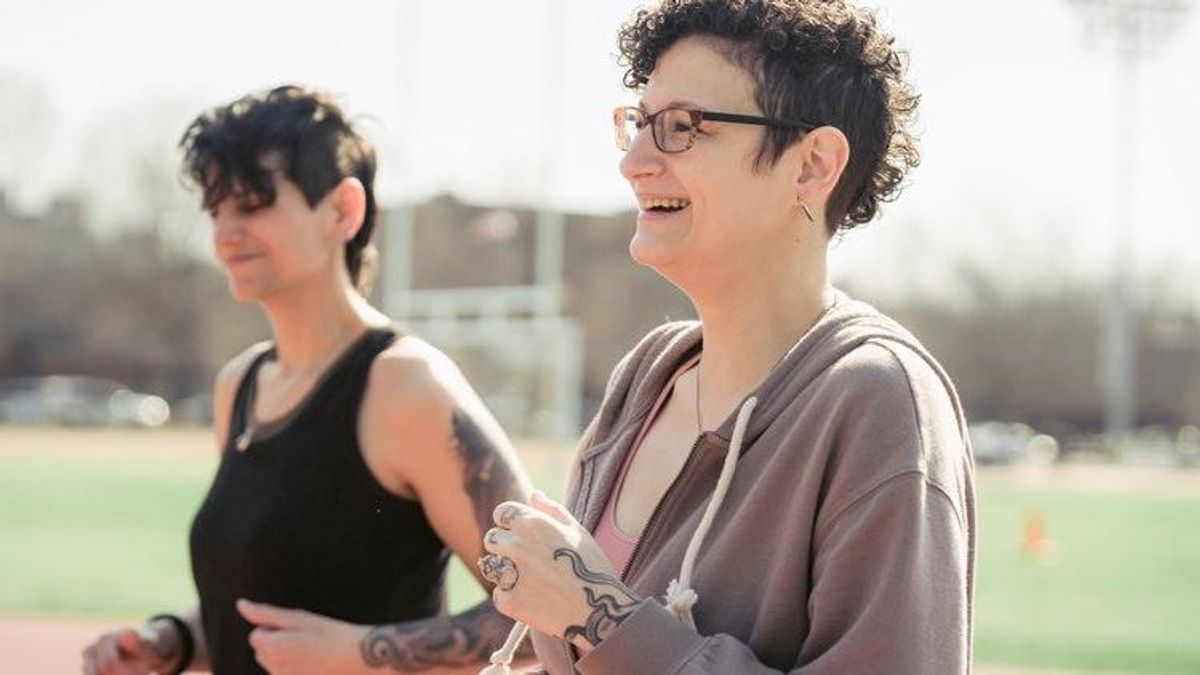On this Intersex Remembrance Day, it is time for the LGBTQ+ movement to finally join the fight for intersex rights.
If you were to estimate the size of the intersex community based solely on the attention they receive, you may never guess that they make up nearly 2 percent of the population. You're about as likely to run into an intersex person on the street as you are a natural redhead. Still, the serious and sometimes life-threatening issues faced by intersex people are rarely discussed in our culture -- and cultural erasure is just the beginning.
"Intersex" is an umbrella term for differences in sex traits or reproductive anatomy, like genitalia, hormones, internal anatomy, or chromosomes, that may be present at birth or manifest later in life. Not unlike the challenges facing bisexual people (1.8 percent of American adults) and transgender people (0.6 percent of Americans), intersex issues have long been neglected. But the oppressions that intersex people face are rooted in the same sexist, homophobic, and transphobic stereotypes that harm all LGBTQ+ people. The imposition of traditional gender norms and the propagation of anti-scientific beliefs about binary sex are the driving force behind the most pernicious type of discrimination against the intersex community: physical erasure through irreversible, nonconsensual, and medically unnecessary procedures.
Before they can consent and often before they can even talk -- intersex children are routinely subjected to irreversible surgeries to "normalize" their bodies. Parents are rarely given a full understanding of the risks before they send their newborn into the operating room, including lifelong conditions. As they grow, intersex people often contend with infertility, acute pain, loss of sensitivity, and psychological trauma. Many of these surgeries amount to sterilization without consent, and some can require lifelong hormone replacement therapy. As to the psychological toll, there are countless stories of people who endured years of pain and confusion before discovering that their intersex identity had been kept secret from them.
The vast majority of these families are acting out of love for their children. For the most part, decisions to alter a baby's reproductive anatomy are driven by doctors' and parents' fears for the future of their intersex child. But the facts don't support the fears. There is no research showing that early, medically unnecessary genital surgery is helpful to these children -- and, indeed, when they are empowered to make decisions about their own bodies as adults, intersex people thrive. A Human Rights Watch report on infant intersex surgeries in the United States concluded the "evidence is overwhelming that these procedures carry great risk of catastrophic harm."
Despite a long history of activism by intersex people and allies, and decades of controversy, these risky and nonconsensual procedures are still happening every day. This is why Harvard Law School's LGBTQ+ Advocacy Clinic and interACT: Advocates for Intersex Youth, the nation's largest intersex rights organization, have partnered to create an online toolkit to empower advocates by providing additional tools for effective legislative strategy in their states. Lawmakers across the country have already partnered with advocates to introduce legislation banning medically unnecessary procedures for intersex children in California, Rhode Island, New Jersey, and New York, and separate bills have appeared in Texas, Indiana, Iowa, Nevada, and Connecticut. This year, the White House hosted its first-ever roundtable with advocates on Intersex Awareness Day. But there is more work to be done, and we need to mobilize in defense of intersex human rights. The new toolkit includes sample legislation including educational bills that raise awareness around this issue as well as enforcement bills that would prevent medically unnecessary surgeries on intersex children until they are able to drive decision-making. It also includes a practical guide for advocates on how to work with partner organizations and legislatures. Leveraging this toolkit, members of the LGBTQ+ community and their allies can better press legislators to protect intersex children from nonconsensual and unnecessary procedures.
Advocating for the bodily autonomy of all young people has never been more important, as an unprecedented number of anti-LGBTQ+ measures have swept through state legislatures this year -- especially targeting young trans people. Many of these bills represent a cruel effort to advance a political agenda that has nothing to do with trans youth, by stigmatizing them at school and restricting their access to gender-affirming, consensual care. The Trevor Project's 2021 National Survey on LGBTQ Mental Health found that 52 percent of these young people seriously considered suicide in the last year. Challenging anti-trans legislation goes hand in hand with advancing prohibitions on nonconsensual surgeries for intersex youth. Both are about fighting the imposition of outdated gender roles and ensuring young people can make their own decisions about consensual, evidence-based treatments. Both are essential to convey the message that young people themselves -- not politicians -- should drive decisions about their own bodies.
Intersex people can no longer be sidelined in the movement for LGBTQ+ rights. As attacks continue to be lodged against people based on antiquated and harmful beliefs about sex and gender, it is more pressing than ever to center the issue of intersex children's bodily autonomy.
Kimberly Zieselman is executive director of interACT: Advocates for Intersex Youth and Sam Ames, director of advocacy and government affairs at The Trevor Project.


















































































Fans thirsting over Chris Colfer's sexy new muscles for Coachella